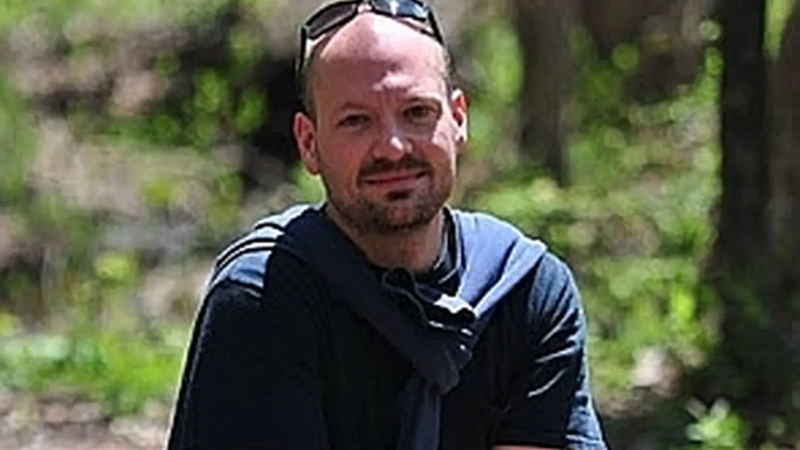A Judge Called His Mandatory Sentence 'Excessive' and 'Wrong.' Less Than a Year Later He Died In Federal Prison
Frederick Turner was sentenced to a mandatory 40 years on nonviolent drug and firearm charges. He ended up in a high-security federal prison, and now he's dead.

Less than a year after being sentenced to prison for 40 years under a mandatory minimum sentence that the judge declared "excessive" and "wrong," Frederick Turner, 38, was found dead in his cell at a high-security federal lockup in Colorado on Wednesday, according to a criminal justice advocacy group.
FAMM, an organization that works to repeal mandatory minimum sentences, announced Turner's death yesterday and said his family had been working to get Turner, who had no prior criminal convictions, transferred to a different prison for his safety.
"The thing that's so frustrating is this was entirely foreseeable," says FAMM president Kevin Ring. "You were sending this gentle, nonviolent offender into a hell hole run by gangs."
Ring says that Turner was sent to the U.S. penitentiary in Florence, Colorado. The prison has a reputation for violence, and Turner feared for his life after he refused to join a white supremacist gang.
The circumstances of Turner's death are not yet known. The Bureau of Prisons did not immediately respond to a request for comment, but its online inmate locator confirms he died on Thursday.
Last July, U.S. District Judge T.S. Ellis III sentenced Turner to 40 years in federal prison after Turner was convicted of dealing methamphetamines for another man, Bassam Ramadan, as part of a larger drug trafficking prosecution in Northern Virginia.
According to his defense attorney and family, Turner struggled with addiction and depression, and he relapsed after the death of his close nephew in 2016. Around that time, Ramadan recruited Turner to sell meth after meeting him on the dating app Grindr.
Turner received a 10-year sentence for the drug crimes and an additional 30 years for gun crimes—five years for the first gun charge, and 25 years for the second gun charge. The "stacking" of gun charges in this way is one of the crueler features of federal sentencing law. (See also: the case of Weldon Angelos, who was sentenced to 55 years in federal prison under stacking firearm enhancements for selling marijuana to an undercover officer while possessing a gun.) And in Turner's case, as in so many others, the gun penalty was based on offenses that would have not been considered criminal had Turner not also been selling meth.
According to prosecutors, Turner visited Ramadan's house, where he knew there was a firearm, and on one occasion he retrieved a gun from Ramadan's car that Ramadan later sold, along with meth, to an undercover officer.
The prosecutors could have chosen not to charge Turner with the firearm enhancements, as Ellis noted, but like many federal defendants who turn down plea deals, he was hammered with what criminal justice advocates and defense attorneys call the "trial penalty." According to the Washington Post, all of the other defendants pleaded guilty and testified against Turner. All of them, including some linked to deadly shootings, received lower sentences. Ramadan, for example, was sentenced to 16 years in prison.
"I think that's excessive," Judge T.S. Ellis III said after imposing Turner's sentence, The Washington Post reported. "The only thing I can do is express my displeasure. . . . I chafe a bit at that, but I follow the law."
After the sentencing, one of the jurors spoke out to The Washington Post:
"While clearly everyone in the room thought he was guilty, my read of the room is that some people were sad," St. Louis said. "There were people who cried."
It was months later when he learned that Turner, a meth addict with no prior criminal convictions, was sentenced to 40 years behind bars because of mandatory minimum sentencing.
"Mr. Turner has a problem, he made really bad decisions. But do I think he can be a productive member of society? Yes, and I don't think he'll ever get that chance," St. Louis said. "And it's hard to reconcile that."
Ring says FAMM became aware of Turner's case after his sentencing, and the question ever since has been why he was sent to a high-security prison with a reputation for violence.
"That's what we want to know because nobody who looked at his case and his personal profile would have sent him to a place like that because he's never exhibited any violence," Ring says. "He was scared for his life right from the get-go, and the prison knew that."
Several months after Turner was sentenced, Congress passed the FIRST STEP Act, which reduced the mandatory minimum sentences for Turner's crime. He would have only received a 20-year sentence instead. However, Congress did not make those provisions retroactive, meaning Turner could not benefit from them.
A Pew Research Center report released this week found that in 2018, only 2 percent of federal criminal cases went to trial. Massive mandatory minimum sentences give prosecutors so much leverage over defendants that turning down a plea deal and exercising one's constitutional right to trial becomes an irrationally risky choice.
Last month at a FAMM conference, Turner's sister, Mandy Richards, gave an emotional speech about Turner's case. "In that prison you either join a gang or you fear for your life," she said. "This is a brother who has never hurt a soul besides himself."


Show Comments (33)